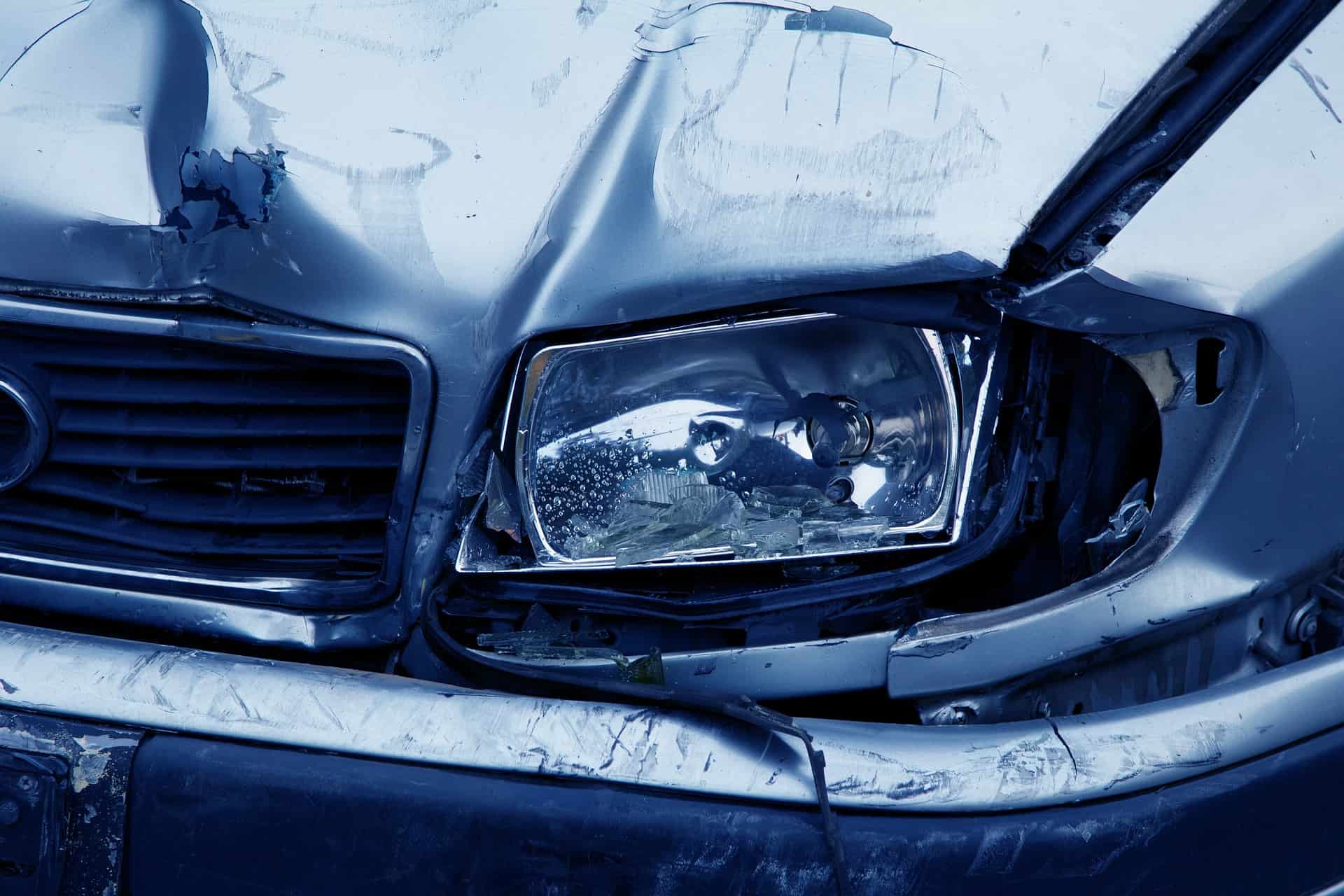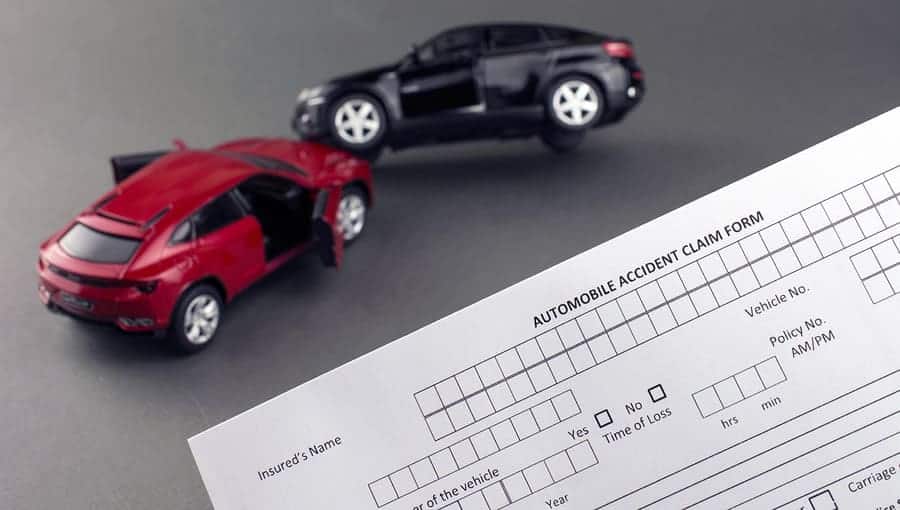Can you recover punitive damages for your car accident? Here is a list of the punitive damages laws for car accidents in all 50 states.
When you are injured in a car accident that is someone else’s fault, you are entitled to “just compensation for the injuries suffered in the crash.” But, are you also entitled to punitive damages? While you can almost always seek to recover just compensation for your losses (unless you live in a no-fault insurance state and your injuries are fairly minor), the circumstances in which car accident victims can recover punitive damages are much more limited. While each state has adopted its own punitive damages laws, as a general rule, punitive damages are only available to car accident victims in car accident settlement cases involving grossly negligent, severely reckless, or “wanton” conduct.
We have compiled the punitive damages laws for car accident cases in all 50 states. Scroll down to find out about punitive damage laws in your state:

- How Much Is Your Car Accident Settlement Worth?
Find out the maximum compensation you could receive.
- How Much Is My Car Accident Settlement Worth?
An Introduction to Punitive Damages in Car Accident Cases
What are punitive damages, exactly? The best way to explain punitive damages is to contrast them with compensatory damages.
In most cases ,when you file an insurance claim after a car accident, you are seeking compensatory damages. This is where the term “just compensation” comes from. Compensatory damages are intended to replace – or compensate for – the losses you incur as a result of the accident. This includes your current and future medical bills, lost wages, pain and suffering, and other losses.
Punitive damages are not intended as a form of compensation, but rather as a form of punishment. This punishment is imposed on the driver (or other party) that was at fault in your accident.
In all 46 of the states that allow punitive damages claims, this form of punishment is reserved for cases in which the at-fault party’s conduct is particularly egregious. Simply making a driving error is not enough to trigger liability for punitive damages. Instead, punitive damages claims typically involve conduct such as driving under the influence, intentionally violating safety regulations, or other misconduct that is prohibited by law because it clearly (and unnecessarily) puts others in harm’s way.
Punitive Damages in Car Accident Cases: States Beginning with A through G
State |
Can Punitive Damages Be Awarded in Car Accident Cases? |
Is There a Cap on Punitive Damages? |
State Punitive Damages Law |
| Alabama | Yes | $1.5 million or 3x compensatory damages | Alabama Code Section 6-11-20 |
| Alaska | Yes | $500,000 or 3x compensatory damages | Alaska Statutes Section 09.17.020 |
| Arizona | Yes | No cap | Rawlings v. Apodaca, 726 P.2d 565 (Ariz. 1986) |
| Arkansas | Yes | $250,000 or 3x compensatory damages | Arkansas Code Section 16-55-206 |
| California | Yes | No cap | California Civil Code Sections 3294 and 3295 |
| Colorado | Yes | 1x compensatory damages | Colorado Revised Statutes Section 13-21-102 |
| Connecticut | Yes | Only litigation costs can be recovered | Berry v. Loieau, 614 A.2d 414 (Conn. 1992) |
| Delaware | Yes | No cap | Littleton v. Young, 608 A.2d 728 (Del. 1992) and Jardel Co., Inc. v. Hughes, 523 A.2d 518 (Del. 1987) |
| Florida | Yes | $2 million or 4x compensatory damages | Florida Statutes Sections 768.72 and 768.725 |
| Georgia | Yes | $250,000 | Georgia Code Section 51-12-5.1 |
4 Important Facts about Punitive Damages in Car Accident Cases
Are you wondering if you have a claim for punitive damages as a result of your car accident? If so, here are four important facts for you to know:
1. Punitive damages are not available in all car accident cases. But, they also are not limited to claims against negligent and reckless drivers.
As we mentioned above, punitive damages are not available in all car accident cases. In fact, they are not even available in most car accident cases. In order to recover punitive damages for your car accident, you must be able to prove that the other driver (or other at-fault party) either:
- Engaged in grossly negligent conduct;
- Engaged in severely reckless conduct; or,
- Engaged in “wanton” conduct that exhibited a disregard for the value of human life.
However, just like claims for compensatory damages, claims for punitive damages are not limited to claims against the other driver. Drivers’ employers, trucking companies liable for a truck accident settlement, etc, vehicle manufacturers and repair shops, and various other “third parties” can all potentially face liability for compensatory and punitive damages in car accident cases as well.
2. The “burden of proof” for obtaining punitive damages in a car accident case is often higher than the burden for obtaining compensatory damages.
Not only does recovering punitive damages require evidence of particularly egregious conduct, but it also requires that you meet a heightened “burden of proof” in many states. In claims for compensatory damages, you need to prove liability by a “preponderance of the evidence.” This means that you need to prove that it is more likely than not that the other driver (or third party) was at fault. This is a 51% standard.
In most states, punitive damages claims require proof by “clear and convincing” evidence. This is more in the range of 75%–but it is still lower than the “beyond a reasonable doubt” standard that requires 99% (or greater) certainty. Colorado requires proof beyond a reasonable doubt, and a handful of states only require proof by a preponderance of the evidence.
3. Recovering punitive damages generally means going to trial.
While most car accident claims settle, most car accident claims do not involve claims for punitive damages. If you want to recover punitive damages, you will most likely need to be prepared to take your claim to court. Rarely will at-fault parties agree to being punished, so securing a punitive damages award generally involves convincing a jury to rule in your favor.
4. There are some exceptions to the general rules summarized in the tables on this page.
While the tables on this page summarize the general laws regarding punitive damages for car accidents in all 50 states, exceptions can apply under various circumstances. For example, in many states, it is not possible to pursue a claim for punitive damages against a government entity (i.e. if your accident results from an issue with the road). Some states’ laws also limit the ability to recover punitive damages to certain types of cases—such as car accidents involving a drunk driver or car accidents resulting in wrongful death. As a result, while you can use these tables as a general reference, you will need to consult with a local car accident lawyer to determine if punitive damages are available given the specific circumstances of your case.

- Speak to a Car Accident Attorney
- Fast, Free & Confidential!
Punitive Damages in Car Accident Cases: States Beginning with H through M
State |
Can Punitive Damages Be Awarded in Car Accident Cases? |
Is There a Cap on Punitive Damages? |
State Punitive Damages Law |
| Hawaii | Yes | No cap | Ditto v. McCurdy, 947 P.2d 952 (Haw. 1997) |
| Idaho | Yes | $250,000 or 3x compensatory damages | Idaho Code Section 6-1604 |
| Illinois | Yes | No cap | Int’l Union of Operating Eng’rs, Local 150 v. Lowe Excavating Co., 870 N.E.2d 303 (Ill. 2006) and Ainsworth v. Century Supply Co., 693 N.E.2d 510, 515 (Ill. App. Ct. 1998) |
| Indiana | Yes | $50,000 or 3x compensatory damages | Indiana Code Section 34-51-3-2 |
| Iowa | Yes | 3x compensatory damages | Iowa Code Section 668A.1 |
| Kansas | Yes | $5 million | Capitol Fed. Sav. & Loans v. Hohman, 675 P.2d 384 (Kan. Ct. App. 1984) and Reeves v. Carlson, 969 P.2d 252 (Kan. 1988) |
| Kentucky | Yes | No cap | Kentucky Statutes Sections 411.184 and 411.186 |
| Louisiana | For DUI accidents only | No cap | Louisiana Revised Statutes Section 13:5106 |
| Maine | Yes | $75,000 | McAlister v. Slosberg, 658 A.2d 658 (Me. 1995) and St. Francis De Sales Fed. Credit Union v. Sun Ins. Co. of N.Y., 818 A.2d 995 (Me. 2003) |
| Maryland | Yes | No cap | Hoffman v.
Stamper, 867 A.2d 276 (Md. 2005) and Darcars Motors of Silver |
| Massachusetts | In cases of wrongful death only | No cap | Massachusetts General Law Chapter 229, Section 2 |
| Michigan | No | Not applicable | Rafferty v Markovitz, 602 N.W.2d 367 (Mich. 1999) |
| Minnesota | Yes | No cap | Minnesota Statues Section 549.20 |
| Mississippi | Yes | Cap varies based upon the defendant’s net worth, up to a maximum cap of $20 million | Mississippi Code Section 11-1-65 |
| Missouri | Yes | $500,000 or 5x compensatory damages | Missouri Revised Statutes Section 510.265 |
| Montana | Yes | $10 million or 3% of net worth | Montana Code Section 27-1-221 |
IMPORTANT: You May Also Have a Claim for Punitive Damages Based on Insurance Bad Faith
In addition to pursuing punitive damages claims against drivers and other at-fault parties, in some states it is also possible to pursue punitive damages claims against insurance companies that engage in bad-faith insurance practices. If an insurance company wrongfully denies your insurance claim, then not only may a lawyer be able to help you secure coverage for your losses, but your lawyer may be able to help you secure punitive damages as well.
Punitive damages laws for insurance bad faith vary by state, and these laws are different from the laws referenced in the tables on this page. A local car accident attorney can determine if you are entitled to punitive damages for insurance bad faith.
Punitive Damages in Car Accident Cases: States Beginning with N through O
State |
Can Punitive Damages Be Awarded in Car Accident Cases? |
Is There a Cap on Punitive Damages? |
State Punitive Damages Law |
| Nebraska | No | Not applicable | Nebraska Constitution Article VII, Section 5 |
| Nevada | Yes | $300,000 (if compensatory damages are less than $100,000) or 3x compensatory damages (if compensatory damages are greater than $100,000) | Nevada Revised Statutes Sections 42.005 and 42.010 |
| New Hampshire | No | Not applicable | New Hampshire Revised Statutes Section 507:16 |
| New Jersey | Yes | $350,000 or 5x compensatory damages | New Jersey Statutes Sections 2A:15-5.9 and 2A:15-5.12 |
| New Mexico | Yes | No cap | Romero v. Mervyn’s, 784 P.2d 992 (N.M. 1989) |
| New York | Yes | No cap | Mathie v. Fries, 121 F.3d 808 (2d Cir. 1997) and Martin v. Group Health Inc., |
| North Carolina | Yes | $250,000 or 3x compensatory damages | North Carolina General Statutes Sections 1D-15, 1D-25, and 1D-35 |
| North Dakota | Yes | $250,000 or 2x compensatory damages | North Dakota Cent. Code Section 32-03.2-11 |
| Ohio | Yes | 10% of net worth or 2x compensatory damages, subject to a $350,000 maximum | Ohio Revised Code Section 2315.21 |
| Oklahoma | Yes | $100,000 or 1x compensatory damages | Oklahoma Statutes Section 23-9.1 |
| Oregon | Yes | No cap | Oregon Revised Statutes Section 31.730 |
Tips for Seeking Punitive Damages After an Accident
Do you think that you may be entitled to punitive damages for a serious or fatal car accident? If so, here are five tips you can use to help maximize your chances of filing a successful claim:
1. Hire a car accident lawyer to conduct an investigation.
In order to file a claim for punitive damages, you will need to hire a lawyer to investigate your car accident. Your lawyer will need to gather evidence that he or she can use not only to prove that the other driver (or other at-fault) party engaged in grossly negligent, severely reckless, or “wanton” conduct, but also to meet your state’s “burden of proof” for punitive damages claims.
2. Follow through with your doctor’s recommendations.
When you have a car accident claim, it is extremely important to follow your doctor’s advice. Not only is this important for your physical and psychological recovery, but it is also essential to preserving your legal rights. This includes your right to recover punitive damages (if punitive damages are available given the circumstances involved in your accident).
3. Work with your lawyer to accurately calculate your compensatory damages.
Since punitive damages are often calculated as a multiple of compensatory damages, in order to seek punitive damages, you need to know how much you are entitled to recover in terms of “just compensation.” You will need to work with your lawyer to calculate your current and future accident-related losses.
4. Be prepared for your car accident claim to take longer than usual.
As we mentioned above, seeking punitive damages will most likely mean taking your car accident claim to court. This means that it will take longer to resolve your claim than it would if you negotiated a settlement with the insurance companies. There are options available if you need help covering your expenses in the short-term, and your lawyer can help you with options such as providing a letter of protection or obtaining “pre-settlement” funding.
5. Talk to your lawyer about filing a “third party” or insurance bad faith claim.
When you get a lawyer for your car accident, your lawyer can help you determine what type(s) of claim(s) you should file. While you might have a claim against the at-fault driver, you could also have a claim against a “third party,” such as a vehicle manufacturer or government agency. If an insurance company wrongfully denies you compensation, you may be able to seek damages (including punitive damages) for insurance bad faith.
Punitive Damages in Car Accident Cases: States Beginning with P through W
State |
Can Punitive Damages Be Awarded in Car Accident Cases? |
Is There a Cap on Punitive Damages? |
State Punitive Damages Law |
| Pennsylvania | Yes | No cap | Hutchison ex rel. Hutchison v. Luddy, 870 A.2d 766
(Pa. 2005) and Pennsylvania |
| Rhode Island | Yes | No cap | Berberian v. New England Tel. & Tel. Co., 369 A.2d 1109
(R.I. 1977) and Johnson v. Johnson, 654 A.2d 1212 (R.I. 1995) |
| South Carolina | Yes | No cap | South Carolina Code Section 15-33-135 |
| South Dakota | Yes | No cap | South Dakota Codified Laws Sections 21-1-4 and 21-3-2 |
| Tennessee | Yes | No cap | Hodges v. S.C. Tool & Co., 833 S.W.2d 896 (Tenn. 1992) |
| Texas | Yes | $200,000 or 2x compensatory damages in some cases | Texas Civil Practice & Remedies Code Section 41.001 |
| Utah | Yes | 3x compensatory damages | Utah Code Section 78B-8-201 |
| Vermont | Yes | No cap | Brueckner v. Norwich Univ., 730 A.2d 1086 (Vt. 1999) |
| Virginia | Yes | $350,000 | Virginia Code Section 8.01-38.1 |
| Washington | No | Not applicable | Dailey v. N. Coast Life Ins. Co., 919 P.2d 589 (Wash. 1996) |
| West Virginia | Yes | No cap | Capper v. Gates, 454 S.E.2d 54 (W. Va. 1994) |
| Wisconsin | Yes | No cap | Wisconsin Statutes Section 895.043 |
| Wyoming | Yes | No cap | Farmers Ins. Exch. v. Shirley, 958 P.2d 1040 (Wyo. |
*The punitive damages laws for all 50 states listed above were last reviewed in 2020. You should review your state’s code to make sure you know the law in your state, and you should contact a lawyer to find out what damages are available to you if you have been injured in a car accident.

- What’s my car accident settlement worth?
- Find out in less than 60 Seconds!
FAQs: What Do You Need to Know about Filing a Claim for Punitive Damages After a Car Accident in Your State?
Q: When is it possible to recover punitive damages after a car accident?
In order to recover punitive damages after a car accident, the first question you need to answer is whether punitive damages are available in your state. You can do this by using the tables on this page (although you should confirm with a local attorney, as laws change from time to time).
If punitive damages are available in your state, then the next question is whether the person (or company) that was at fault in your accident engaged in grossly negligent, severely reckless, “wanton,” or other conduct that is punishable under your state’s law. If the answer to both of these questions is, “Yes,” then an attorney may be able to help you recover punitive damages.
Q: How do you calculate punitive damages after a car accident?
In car accident cases, punitive damages can be calculated in one of two ways: (i) a flat dollar amount (i.e. $250,000 or $500,000), or (ii) a multiple of your compensatory damages. If you have grounds to seek punitive damages, you will need to work with your attorney to determine the best approach to maximizing your financial recovery.
Q: Does insurance cover punitive damages?
The answer to this question depends on the type of insurance coverage that is available to you. Some types of insurance policies cover punitive damages, while others do not. Additionally, in some states (including California and New York), punitive damages are not insurable under state law.
Q: Are punitive damages awards taxed?
Punitive damages are considered a form of income; and, as a result, they are subject to federal income tax. The IRS makes this clear in Publication 4345, Settlements – Taxability: “Punitive damages are taxable and should be reported as ‘Other Income’ on line 21 of Form 1040, Schedule 1, even if the punitive damages were received in a settlement for personal physical injuries or physical sickness.” Punitive damages awards are generally subject to state and local income tax as well, although specific state laws may vary.

